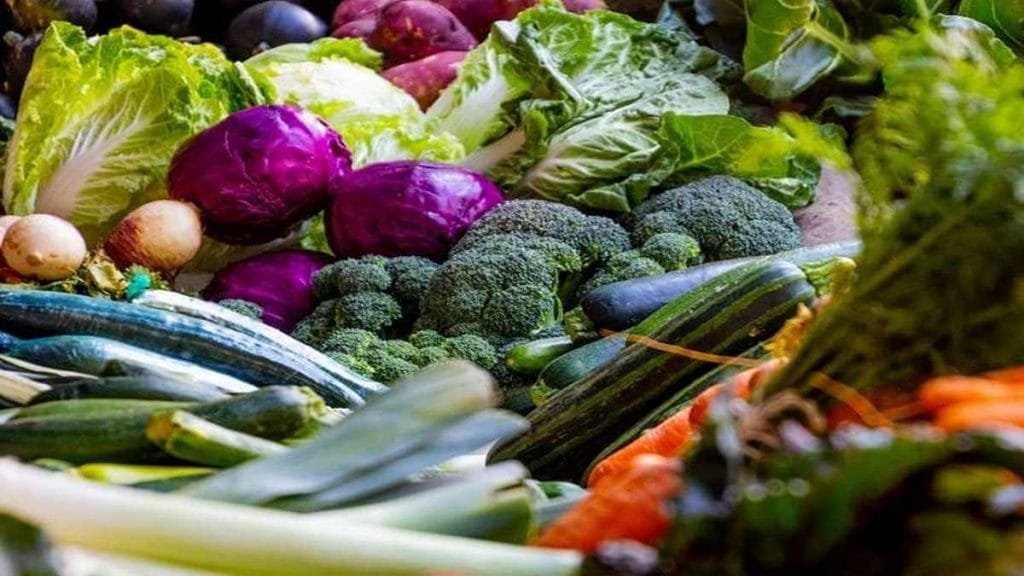In today’s article, we will be talking about ayurvedic remedies for digestive problems in middle age. So, stay connected.
By Dr. Rupali Dhote

In the fast-paced modern world, with homemade food increasingly becoming a luxury, digestive issues like persistent acidity, IBS, and GERD have become pretty standard.
Coupled with erratic lifestyle changes, insufficient physical activities, and drastic work hours, digestive issues tend to flare up exceedingly when middle-aged if not tackled efficiently.
Of course, over-the-counter medications and fizzy salts often come to the rescue in the case of digestive disorders, but these do not suffice as a long-term or permanent solution.
And this is exactly where Indian Ayurveda, with its treasure trove of ancient wisdom and science, comes in great aid.
While it is probably impossible to make Ayurvedic concoctions from scratch in our regular lives, taking cues from Ayurveda to regain a healthier lifestyle can be of immense help.
A few trusted Indian brands are preparing healthy supplements based on the ancient Ayurvedic wisdom to cure lifestyle diseases. Identifying the right brands and utilizing their products might be one of the best ways to uproot your digestive disorders.

Agni or Fire in Ayurveda and Digestive Issues
In Ayurveda, it is believed that the human body is essentially made of five vital elements – earth, water, fire, air, and ether. Each of these components is known to have its traits and responsibilities for the body’s optimal functioning.
For example, the element fire or ‘Agni,’ seated in a person’s lower abdominal area, enables digestion, absorption of nutrients, and burning toxins or wastes.
According to Ayurvedic sciences, if you suffer from persistent indigestion or other digestive issues, you might be suffering from weak Agni.
However, don’t let these jargon or complex words perplex you, for Ayurveda also enlists numerous remedies to tackle the various Agni doshas or digestive issues.
But before reading about the remedies, let’s take a look at the healthy eating habits provided by Ayurvedic practitioners to cure digestive problems from their roots.
- Eat to Satiate Hunger
One of the pieces of wisdom imparted by Ayurvedic practitioners since time immemorial is to eat only when you’re hungry and at a slow pace. Eating when hungry is a way to identify and respond to the body’s call, i.e., when the body has already digested the previous meal and is ready to absorb more into the system.
On the other hand, eating slowly keeps you aware of your consumption while helping the food be chewed down properly for easy absorption. As a result, you eat only when required and the exact portion wanted by the body rather than eating too much, too little, or too often.
- Keep a Gap of Three Hours Between Meals
Often, while working, we tend to suppress our hunger habitually. As a result, the gap between the meals increases unconsciously.
The best way to tackle this problem, especially when you are middle-aged and too busy with your work to have a proper eating schedule, is to eat something every three hours.
It might not always be a major meal, but having fruits, dry fruits, snacks, etc., between your meals is known to increase your metabolism and keep your gut health strong and efficient.
- Keep Away from Junk Food
Junk food or food that is cold, spicy, fried, and wet is known to mess around with Agni. Hence, it is not recommended in Ayurveda to devour junk food regularly.
Even if you are eating homemade food, having fried food, cold milk tea, or too many spices in your simple food might irk your Agni, causing numerous gastric disorders, including constipation, IBS, GERD, etc.
Furthermore, Ayurveda also deters people from drinking ice-cold water. Anything above normal temperature is known to slow down the process of digestion, thus aggravating your digestive issues further.
- Take Ginger Tea or Cumin Tea Regularly
Easy to prepare, these herbal teas (sans caffeine) can help manage optimal gut health and ease various digestive disorders, including bloating, indigestion, acid reflux, etc.
- Say YES to Certain Spices
Can you imagine any Indian food (except a few fancy dishes) that does not have turmeric? Well, turmeric has numerous properties that help maintain optimal gut health and manage the overall health of a person.
Hence, you should always make it a point to incorporate turmeric, asafoetida, cumin, coriander, and fennel seeds into your regular diet. All of these spices have essential properties that aid in having good metabolism.
However, make sure that you add only the required quantities of these spices to whatever dishes you are cooking. Adding an excess of these is never recommended in Ayurveda as it may have adverse repercussions on your overall health.
The trick to having a healthy gut is to make small changes in your lifestyle routine. Eating simple food mindfully, adding essential spices to your regular diet, indulging in junk and fried foods only once in a while, and chewing well go a long way to ensure a healthy gut life and overall good health.
5 Ayurvedic Remedies for Common Digestive Issues
You can bid goodbye to your digestive problems now that you know the trick to have a healthy gut.
These five solutions can easily be incorporated into your regular lifestyle and are often readily available items in any Indian household. Take a look –
1. Drink Warm Water, Salt, and Ghee to Relieve Constipation –
A concoction made with ghee, warm water, and salt is known to alleviate the symptoms of constipation. Ghee, a rich source of butyric acid with immense anti-inflammatory properties, is known to grease the inner parts of the intestines, while salt helps flush out harmful bacteria.
You can make this concoction with half a teaspoon of salt, one teaspoon of ghee, and 1.4 cups of hot water and consume it an hour post-dinner.
Alternatively, you may also try to consume plain castor oil, a well-known laxative, at bedtime to get rid of constipation. However, castor oil is not recommended for pregnant women and children under 12.
2. Warm Water and Fennel Seeds to Alleviate Bloating –
If you notice, fennel seeds are often served complimentary after billing at traditional restaurants.
One of the major reasons is that Ayurveda considers fennel a great agent to combat indigestion and bloating. Hence, you could end your regular meals with toasted fennel if time permits.
And in case of severe bloating that lasts for days, you could add a teaspoon of toasted fennel seeds to a cup of warm water and add a dash of ginger and drink it slowly after your meals.
3. Chaas or Buttermilk to Cure Acid Reflux –
Ayurvedic practitioners often recommend that people suffering from acid reflux or GERD drink a glass of homemade buttermilk or chaas, preferably an hour after lunch.
Chaas, made with yogurt and spices such as roasted jeera or cumin seeds, rock salt, and grated ginger, have cooled-down properties that soothe the stomach and aid in digestion.
To make the perfect buttermilk, add one-fourth cup of curd to half a cup of water and mix well. Add grated ginger, a pinch of roasted cumin powder, and fresh coriander leaves. Mix the concoction well and drink it slowly.
4. Bottle Gourd to Cure Diarrhea –
Bottle gourd is a vegetable with excellent fiber and water content. Hence, it is not only extremely light on the stomach and easy to digest but owing to its water content, it provides a lot of fluids to the body when recovering from diarrhea. You can have bottle gourd as a part of your regular vegetable curry.
Additionally, ginger is also a great remedy for people suffering from IBS or diarrhea as it helps in flushing out toxins. If you suffer from IBS, drinking ginger tea regularly might be a great addition to your lifestyle routine.
5. Garlic and Basil to Take Care of Your Indigestion –
Did you know that, according to Ayurveda, consuming garlic can help tackle digestion? A concoction made out of one-fourth cup of wheatgrass juice, four garlic cloves, and about 12 basil leaves (blend them all) is known to provide a permanent cure to indigestion.
Avoiding raw vegetables and dairy may also prove beneficial in tackling indigestion. However, if you have too much acid reflux, trying methods to suppress it (as noted earlier) may prove more beneficial than curing just indigestion.
The Bottom Line
With the fast-paced world that we are living in right now, it is guaranteed that, more often than not, a middle-aged person at the peak of their career won’t be able to incorporate all the lifestyle changes that Ayurveda demands to maintain gut health.
But should it imply that you have to suffer digestive issues all life long? Definitely not! And this is exactly where Baidyanath products come in handy.
According to Ayurveda, the best way to tackle a problem is to find its root cause and cure it. Hence, regularly aiming for a simple and clean diet, cutting down caffeine, smoking, and other lifestyle problems may help tackle digestive disorders, especially in the mid-age group. If you feel your problem is deeper, consult an Ayurveda practitioner without delay.

